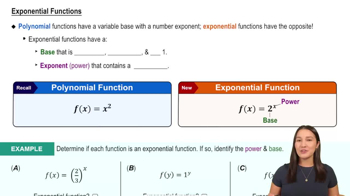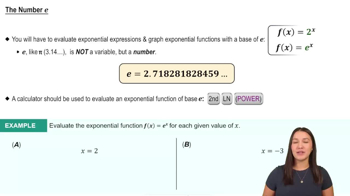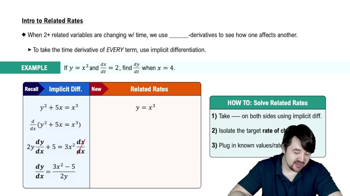Use limit methods to determine which of the two given functions grows faster, or state that they have comparable growth rates.
x² ln x; x³
 Verified step by step guidance
Verified step by step guidance Verified video answer for a similar problem:
Verified video answer for a similar problem:



 5:53m
5:53mMaster Finding Differentials with a bite sized video explanation from Patrick
Start learning